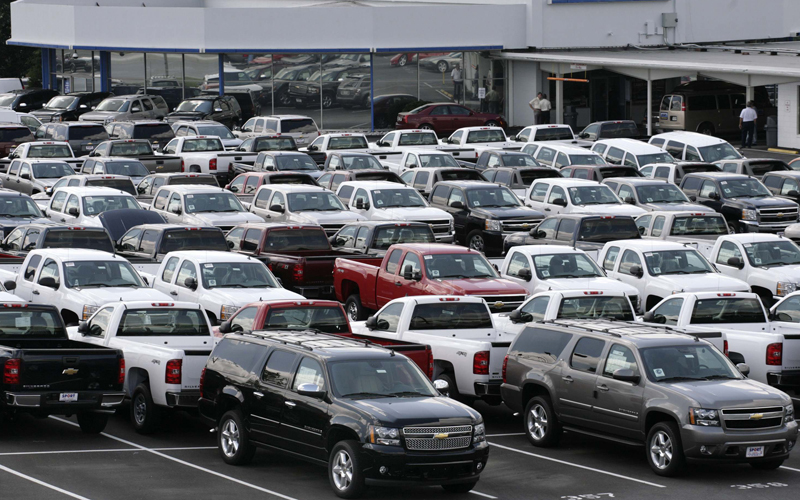Volkswagen Tiguan Lease Deals: Drive Home Today
Navigate the Globe of Auto Leasing: Just How It Functions and Why It Issues
In the world of vehicle procurements, the alternative of leasing typically stands as a useful choice to possession, providing a distinct collection of benefits and considerations. Recognizing the complexities of cars and truck leasing, from its basic functions to the better information of lease terms and end-of-lease options, can dramatically influence one's vehicular decisions and monetary commitments. As we browse with the landscape of cars and truck leasing, it comes to be apparent that the options made in the process hold implications that prolong past mere ease.
Basics of Cars And Truck Leasing
Recognizing the fundamental principles behind cars and truck leasing is crucial for making informed economic decisions when getting an automobile. Vehicle leasing includes a contractual agreement where the lessee (the individual or organization obtaining the lorry) pays the lessor (the renting company) for the usage of a cars and truck over a specific period. Unlike typical vehicle ownership, where the specific owns the automobile, leasing permits the usage of the car without possession duties once the lease term ends.
When leasing a car, aspects such as the lease term, regular monthly settlement amount, gas mileage limitations, and potential costs for surpassing those limitations need careful consideration. Lease terms usually range from 24 to 36 months, with the lessee paying a regular monthly cost that covers the car's depreciation throughout the lease period (Lease specials near me). At the end of the lease, the lessee can often choose to buy the lorry at an established price or return it to the lessor. Recognizing these standard concepts of car leasing can help people navigate the leasing process and make educated decisions concerning their transport requires.
Advantages of Leasing Vs. Purchasing

Understanding Lease Terms and Gas Mileage
To comprehend the nuances of auto leasing totally, it is imperative to explore the specifics of lease terms and gas mileage. Lease terms refer to the duration of the lease arrangement, usually varying from 24 to 36 months. Comprehending these terms is critical as they determine crucial aspects such as monthly payments, upkeep duties, and prospective Affordable lease offers costs for very early termination. It is crucial for lessees to very carefully assess and bargain lease terms to line up with their preferences and driving behaviors.
Mileage is one more vital consider vehicle leasing arrangements. Many leases come with a yearly gas mileage limit, typically around 12,000 to 15,000 miles. Surpassing this limitation can cause excess gas mileage charges, making it essential for lessees to properly estimate their driving requirements prior to authorizing a lease. Furthermore, some leases offer the alternative to purchase additional miles upfront at a discounted price, which can be beneficial for those anticipating higher gas mileage use.
Elements Affecting Lease Prices
Factors affecting lease costs vary depending on a number of essential facets of the leasing contract. Residual worth, which is the estimated value of the vehicle at the end of the lease, also plays an essential duty.
A lower money variable equates to decrease lease costs. In addition, the discussed selling rate of the car effects lease expenditures.
Mileage allocation is another vital factor impacting expenses. Exceeding the agreed-upon mileage restriction can result in additional fees at the end of the lease. Any kind of upfront payments or trade-ins can influence the complete lease costs. By comprehending these variables, lessees can make educated decisions to protect the most effective lease offers customized to their needs.
End-of-Lease Options and Considerations
Checking out the different options offered at the end of an auto lease contract is important for lessees to prepare their following actions successfully. When nearing the end of an automobile lease, lessees generally have three primary choices: returning the automobile, buying it outright, or trading it in for a brand-new lease or acquisition. Returning the cars and truck involves organizing a lease-end examination to assess any excess wear and gas mileage fees. If the automobile is in great condition and within the allowed mileage, there normally aren't any kind of surcharges. Buying the vehicle at the end of the lease can be a sensible choice if the lessee has grown connected to the automobile or if its value goes beyond the fixed purchase option price. Trading in the rented car for a new lease or purchase is another prominent choice, supplying the ease of effortlessly transitioning to a brand-new lorry without the headache of marketing or returning the existing one. Cautious factor to consider of these choices based on specific demands and circumstances is crucial for making the most effective choice at the end of a car lease.

Final Thought
Recognizing lease terms, gas mileage limitations, and factors influencing costs is essential for making informed decisions. When the lease term finishes, lessees have to consider their choices very carefully to avoid any type of unforeseen fees or charges - Lease specials near me.